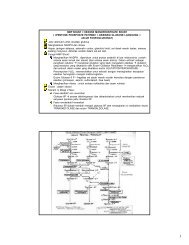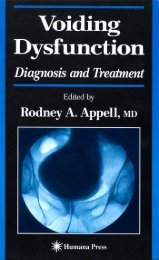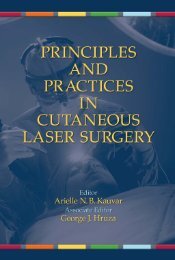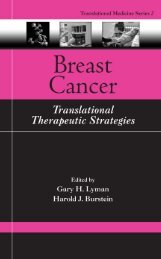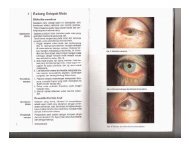International Handbook of Clinical Hypnosis - E-Lib FK UWKS
International Handbook of Clinical Hypnosis - E-Lib FK UWKS
International Handbook of Clinical Hypnosis - E-Lib FK UWKS
Create successful ePaper yourself
Turn your PDF publications into a flip-book with our unique Google optimized e-Paper software.
54 INTERNATIONAL HANDBOOK OF CLINICAL HYPNOSIS<br />
nature <strong>of</strong> memory. What is remembered about an event is shaped by what was<br />
observed <strong>of</strong> that event, by conditions prevailing during attempts to remember, and<br />
by events occurring between the observation and the attempted remembering. It is<br />
essential therefore to recognize that memories can be altered, deleted, and created<br />
by events that occur during and after the time <strong>of</strong> encoding, during the period <strong>of</strong><br />
storage, and during attempts at retrieval.<br />
Repression and dissociation are key processes in some theories and particular<br />
approaches to therapy. According to these theories, memories <strong>of</strong> traumatic events<br />
may be blocked out unconsciously and this leads to a person having no memory <strong>of</strong><br />
the events. However, memories <strong>of</strong> traumatic events may become accessible at some<br />
later time. It is important to recognize that the scienti®c evidence does not allow<br />
precise statements to be made about a de®nite relationship between trauma and<br />
memory McConkey & Sheehan, 1995). The evidence tells us more that memories<br />
reported spontaneously or following the use <strong>of</strong> special procedures in therapy may<br />
be accurate, inaccurate, fabricated, or a mixture <strong>of</strong> these. Belief can <strong>of</strong>ten be strong<br />
but it is not the yardstick <strong>of</strong> veracity; and neither is the level <strong>of</strong> detail diagnostic <strong>of</strong><br />
the truth <strong>of</strong> the recollections.<br />
We know that sexual and/or physical abuse against children and adults is<br />
destructive <strong>of</strong> mental health, self-esteem and personal relationships. It is a fact also<br />
that reports <strong>of</strong> abuse long after the events are reported to have occurred are dif®cult<br />
to prove or disprove in the majority <strong>of</strong> cases. Independent corroboration is for the<br />
most part impossible. It is therefore essential that clinicians exercise special care<br />
in dealing with clients, their family members, and the wider community when<br />
allegations <strong>of</strong> past abuse are made.<br />
Looking summarily at the evidence, there is increasing testimony now that<br />
there are individuals entering therapy with no speci®c recollection <strong>of</strong> incest or<br />
molestation who, during the course <strong>of</strong> therapy, uncover detailed recollections <strong>of</strong><br />
repeated sexual abuse by family members. Many <strong>of</strong> these people believe their<br />
recovered memories are veridical, and have taken legal action on the basis <strong>of</strong><br />
these memories which have sometimes been recovered through hypnosis. There is<br />
now full-scale debate about the issues in the scienti®c, pr<strong>of</strong>essional, and massmarket<br />
literature.<br />
Serious questions exist in the literature about the validity <strong>of</strong> recovered memories<br />
see research by L<strong>of</strong>tus and her associates L<strong>of</strong>tus & Ketcham, 1994, for example).<br />
Major issues at stake include the validity <strong>of</strong> repression as a psychological mechanism,<br />
where there is substantial evidence that people can be very con®dent about the<br />
accuracy <strong>of</strong> their memories <strong>of</strong> past events even when those memories are wrong.<br />
Neisser's work with Nicole Harsch Neisser & Harsch, 1992; see also Neisser,<br />
1993) on the Challenger space shuttle disaster compellingly illustrates that memory<br />
for emotionally charged events is widely inaccurate, despite the conviction people<br />
might hold about these events. That work convincingly demonstrates that personally<br />
memorable events occurring in the past are <strong>of</strong>ten not what they seem and can<br />
be entirely misleading in the manner in which they are reported. Memories <strong>of</strong>


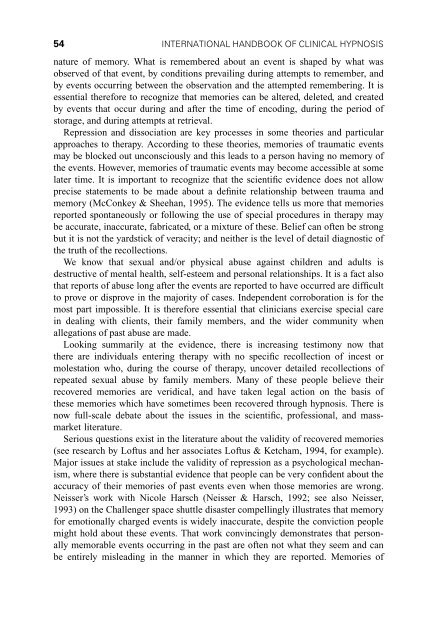
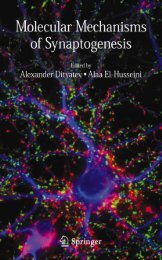
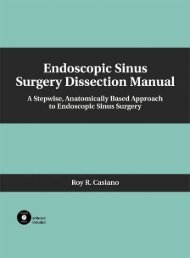
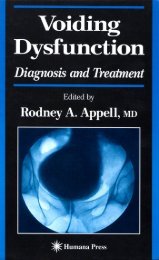
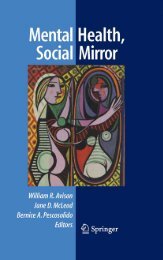
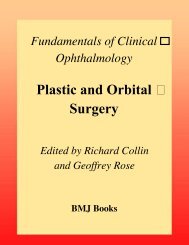
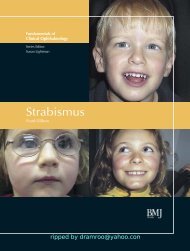
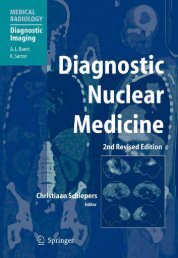

![SISTEM SENSORY [Compatibility Mode].pdf](https://img.yumpu.com/20667975/1/190x245/sistem-sensory-compatibility-modepdf.jpg?quality=85)
